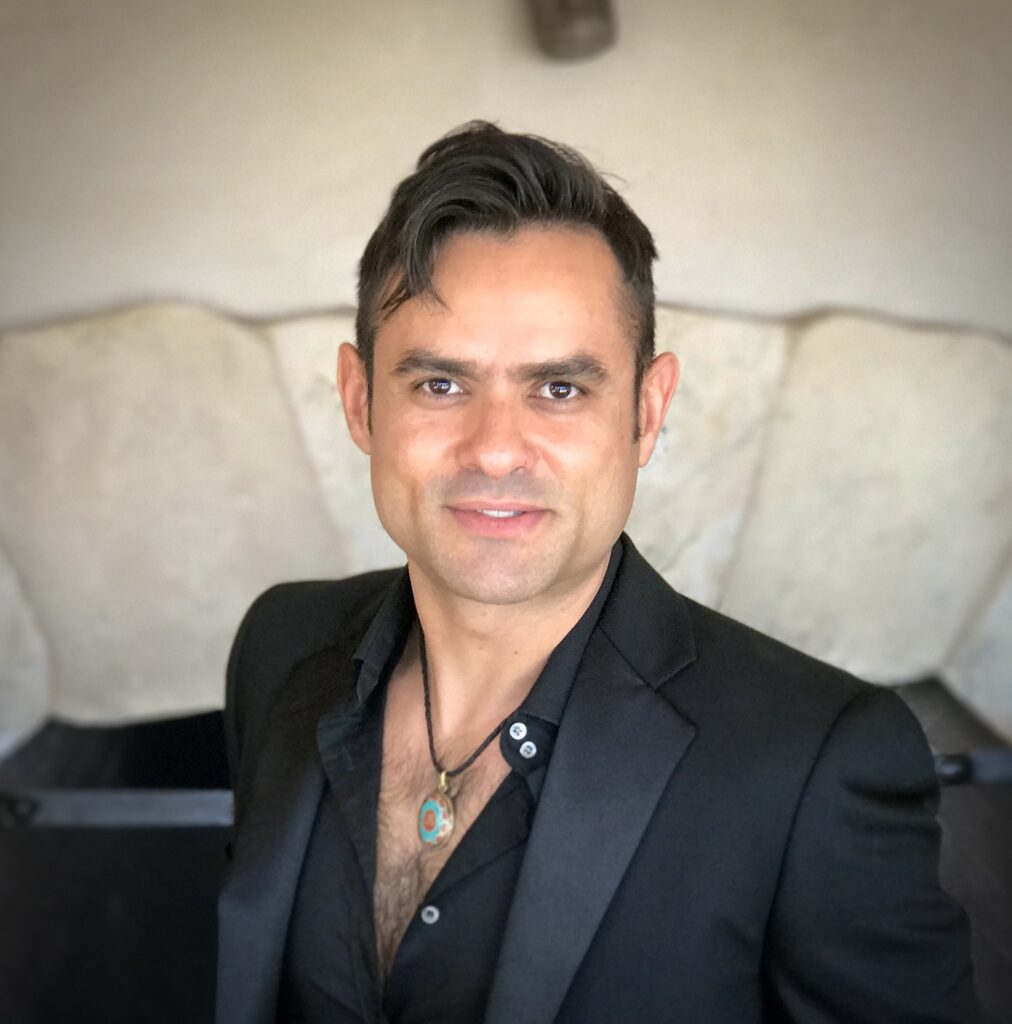In honor of Pride Month, I spoke with Rosenman Institute Associate Director of Communications & Marketing, Herminio Neto on his experience as a gay man at UCSF and the significance of pride in the health tech industry.
MH: As an introduction, can you tell us a bit about your background and what you do here at the UCSF Roseman Institute?
HN: Yeah, so I managed a property management company back in Florida when I was 21 years old, fresh out of school. After that, I sold that company in Florida and I moved to San Francisco, where I was an executive assistant for the CEO of a Bank of America department. I learned so much about business, and how to lead teams, and so on. Then I moved to UCSF as a project manager for the restructuring of human resources. In 2014, I met Christine and started doing events for the Rosenman Institute, coordinating the technology and communicating with the entrepreneurs. Now, I work on all aspects of the marketing of the department.
MH: What would you say Pride is to you and how do you celebrate it?
HN: My first experience with Pride was in Chicago in 2006. It was my first time seeing the whole city coming together for an event. Like, the whole city—grandmas and grandpa and families coming together to celebrate the freedom to express who you are and be yourself. And Pride is liberating. I personally went through so many hardships. There were situations where I had to act a certain way so people wouldn’t judge me, so throughout the years, pride has taught me that there is no secret to keep. It reminds me to celebrate being myself.
MH: I’m glad it’s had that impact on you! I was also curious about your experience as a gay man working at UCSF. Have you experienced discrimination?
HN: UCSF has been one of the most accepting places I’ve ever worked at in my life. When I first started working at UCSF in 2011, I went to the HR department, which was a place with lots of acceptance and openness. And I learned so much about respecting the boundaries of who people were of a different gender identity or race. At UCSF, I have not experienced much discrimination—on the contrary, I’ve felt really free to be who I am. Not only in this specific department now, but in all the previous departments that I’ve worked with or events that I’ve been to, I felt that I’ve always been celebrated.
MH: Why do you feel diversity in sexual orientation and gender identity is important in the medical field?
HN: I mean, it leads to innovation. In the healthcare industry, you’re talking about taking care of all types of people, all genders, all sexual orientations, all colors, from everywhere. So I believe that having more diversity in the field is important because when you develop a product, it’s important to have the input of people with different backgrounds. Being accepting of diversity brings more innovation. It brings more creativity. It brings together people with different views and brings more good.
MH: What steps do you think organizations like UCSF—or just companies in general—can take to increase diversity or improve quality of life for LGBTQ+ workers?
HN: There needs to be education. I don’t think that a company should go in and be like, oh, I want everybody to learn about this specific topic. No, I believe companies should provide training to their employees and information on what the facts are. That’s something concrete. Also, hiring folks with different sexual orientations and different backgrounds and different ethnicities and all of that. Bringing a mix of folks together is one of the keys to having a healthier work environment.
Herminio Neto has worked at the UCSF Rosenman Institute since 2014. He received his Bachelor’s Degree in Business Administration and Management from Faculdades Alves Faria. He currently works as the Associate Director of Marketing and Communications for the Rosenman Institute and also produces The Health Technology Podcast.
